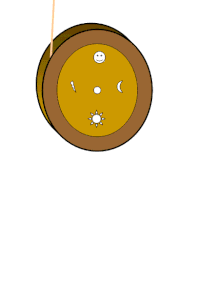
The British nurse who caught Ebola and had to be flown back to a hospital in London to get treated plans to return to Sierra Leone:
“It's the least I could do to go back and return the favour to some other people, even just for a little while,” Mr Pooley told the Guardian.
“The more help they get the less chance there is they get sick. If they get sick they are just going to end up in a ward in Kenema with less chance than I had."
Usually, I am in favour of people being helpful. It certainly beats breaking into an Ebola treatment centre and stealing the mattresses. However, I feel uncomfortable about Western health workers going to Africa, catching a disease they catch only if they don’t take the necessary precautions, and then being flown out for treatment which is not available to their work colleagues in Africa. They have a “get out of jail” card that other nurses do not, and many have died as a consequence.
Furthermore, if Mr Pooley gets some other disease in Sierra Leone, will he be flown back to London again, and then fling himself back into his own version of helping in Africa? He seems to have a predilection for solo working outside well organised treatment facilities. There seems to be a very strong case for examining his skills at barrier nursing before letting him go anywhere. There is no specific treatment for the average African patient (as opposed to Western health visitor) other than standard nursing, plus precautions for staff. Bluntly, what can he do that an appropriately trained and managed West African nurse cannot do? His treatment costs and plane fares would probably hire lots of local workers, and would also pay for lots of rubber gloves which West African nurses lack, plus unpaid wages.
His nursing task is not a highly technical one, like sequencing the Ebola virus and checking the mutation rate. He will not be designing new drugs of the sort he took himself. He will not be guiding a computer-driven laser into an afflicted patient. All he will be doing is administering standard nursing care and, with any luck, avoiding getting and spreading the disease.
I am perfectly willing to accept European exceptionalism as a general principle derived from five centuries of notable achievement, but in this instance I think Mr Pooley should listen to his mother: she was very relieved when, as part of infection control, his passport was incinerated.

“Certainly it would be different from the state-of-the-art medical treatment Pooley received at the Royal Free…… He was the first patient in the unit for two years.”
ReplyDeleteThis had to be a plus for the hospital unit (and all potential beneficiaries). They got to do a live test of their facility and procedures.
All he will be doing is administering standard nursing care and, with any luck, avoiding getting and spreading the disease.
I say he is the best choice for going back. I think he likely has some immunity. He could test the strength and duration of that immunity. That test should yield very valuable information.
I am sure that you know that this mis-match between the altruistic impulse and the cognitively directed behavior happens all the time. It’s a package deal.
“Bluntly, what can he do that an appropriately trained and managed West African nurse cannot do?”
Bluntly speculate on the whether it is possible to have sufficient “appropriately trained and managed West African nurse[s]”.
Such speculation will drive your hits up.
Immunity is in his favour, sure. Can West Africa train and manage nurses to simple nursing care? They ought to be able to do so.
DeleteAt the risk of being politically incorrect, I'm sure that there are plenty of properly trained nurses, it's African management that's the problem. There's a parallel with military matters here: most African armies are a joke today, but with European officers, African askaris often performed in an outstanding manner. In WWII, Africans made fine soldiers and NCO's. Officers? Not so good...
ReplyDeleteWell, you did risk it and what you are saying is very much politically incorrect. You say that it is a management problem. There are no properly trained managers because.....?????
DeleteHow did the Zulu managers/officers do back it the old days against the British?
I have no doubt that there are a lot of Zulus around who could manage an Impi of spearmen. The people in Liberia are not Zulus, and, in any case, managing the care of multiple Ebola patients is a somewhat different matter.
DeleteBesides, I don't think that you really want to say that the Zulu army, brave as it was. was as well managed as the British, do you? Because that would be really silly.
Well, for what it’s worth, you were the one that expanded it from Liberia and West Africa to Africa.
DeleteI am not sure, but I doubt that the Zulus would be able to re-create what they had at that time.
I am not even sure that we could do another D-Day.
Don’t know when the British military went to a professional officer corps.
My opinion was that they might not be able to “manage” a hospital in Liberia. In which case, do you just send them a few posters on what to do and forget about it?
Come on, the gentleman feel good about himself, that must be worth a million!
ReplyDelete